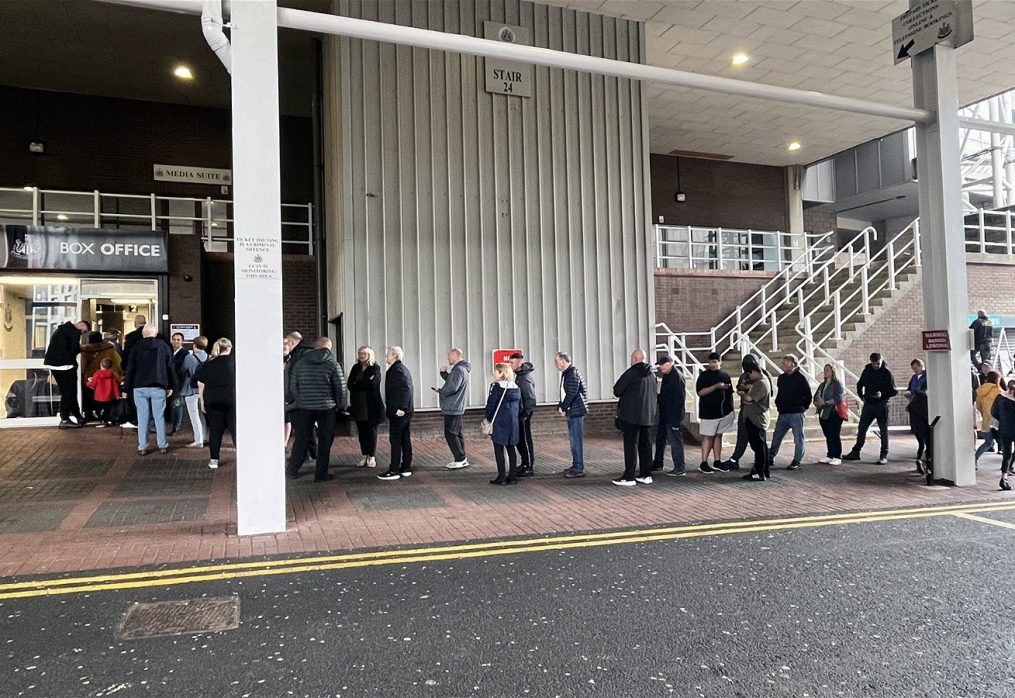The conversations on Newcastle United ticketing and membership show no signs of abating
The recent spate of articles concerning Newcastle United ticketing and memberships show now sign of abating this week, so here’s another one.
I commented myself on Tuesday, in an article that attempted to provide an assessment of how the new owners had been performing since the takeover.
In that article, I gave the Newcastle United owners 9.5 ticks out of 14 (it would have been 10.5 had my article covered what the owners have done in relation to the ladies team – thanks X2 for his comment re that), so on the whole very positive.
My assessment only had the owners losing marks because of Newcastle United ticketing – both pricing and the poor way in which the membership scheme had been communicated, something that following intervention from the NUST, prompted a U turn by the owners, which I commend.
In another article on Thursday, Greg McPeake challenged the U turn, commenting that the owners are guilty of the perfect capitalist ruse, for distracting fans with the U turn, whilst not addressing the underlying issue relating to the extortionate increase in ticket prices. Thought provoking Greg and thanks for highlighting such an important matter in the way you did.
On Tuesday, in his article, Jamie Smith commended the club’s approach to cracking down on ticket fencing through the introduction of checks against ID at away games, but then went on to make the very valid point that whilst organising such checks will take some doing, to enter a football stadium in this country, supporters are under no legal obligation to carry ID.
Jamie’s point takes us back to the 1980s, a truly dark era for association football after years of greed and incompetence by those in charge of running the game. Fewer people were attending games than ever before, while lurid press reports of fan violence would have led anyone who didn’t attend matches to think that football stadia were life-threatening environments, teeming with drunken, dart-throwing maniacs. As the government then was fond of saying, football had become a “law and order issue.”
Crowd disasters and full scale riots in 1985 became a watershed.
A terrace riot had been the immediate cause of the deaths of 39 Italian supporters at Heysel stadium, Brussels on 29 May, but several other contributory factors were overlooked in the rush to condemn football fans, including the woefully decrepit state of the stadium and the badly mismanaged distribution of tickets (sound familiar)?
A month before Heysel, a fire in a wooden stand at Bradford City caused 56 deaths. The fire highlighted what football spectators had known for years: many grounds had been allowed to decay to the point that they had become deathtraps. They were also monuments to the complacency of the game’s authorities; football fans were expected to tolerate uncomplainingly the sub-standard facilities.
On the same day as the Bradford fire, a Leeds United supporter lost his life after a wall collapsed in the aftermath of a full-scale riot at St Andrews, the home of Birmingham City. A couple of months earlier, Millwall hooligans descended on Kenilworth Road in Luton for an FA cup replay in which they invaded the pitch and tore up seats to use as missiles against the police.
One of the worst prime ministers this country has had in the modern era (until the last year or so that is) Margaret Thatcher, believed football fans were as much of a menace as striking trade unionists. The right-wing media gave the impression to anyone who didn’t attend matches, that to do so was inherently unsafe. The post-Heysel resolve to “do something” about football hooliganism led to a proposal that would see fans having to produce ID cards to gain admission. Luton Town, whose chairman David Evans was also a Conservative MP, introduced a deeply unpopular prototype scheme that barred all away supporters from their games following the Millwall riot.
The outcry over Luton’s actions didn’t deter the government, whose Football Spectators Act of 1989 made ID cards compulsory. Thatcher told Graham Kelly and Ted Croker, the highest-ranking officials at the Football League and the Football Association of her woefully misconceived plan at a 90-minute meeting in Downing Street. At least Kelly and Croker had the gumption to argue against the introduction of ID cards, but their pleas fell on deaf ears and were summarily rejected, even after the FA had somewhat bizarrely agreed to cancel an England-Italy friendly in an attempt to assuage Thatcher and her acolytes.
Thankfully, the plan was fully abandoned, but only after the deaths of 97 fans at Hillsborough later that year. The ensuing Report by Lord Justice Taylor held the police’s crowd control methods largely to blame for the loss of life.
Which brings us back to ticketing and memberships, at Newcastle United and elsewhere. Are we on the cusp of the imposition of another totalitarian regime when it comes to entering football grounds? It certainly feels like it.
Thank goodness, we have platforms such as The Mag and others, as well as politicised supporters groups that raise such important issues.
HTL
